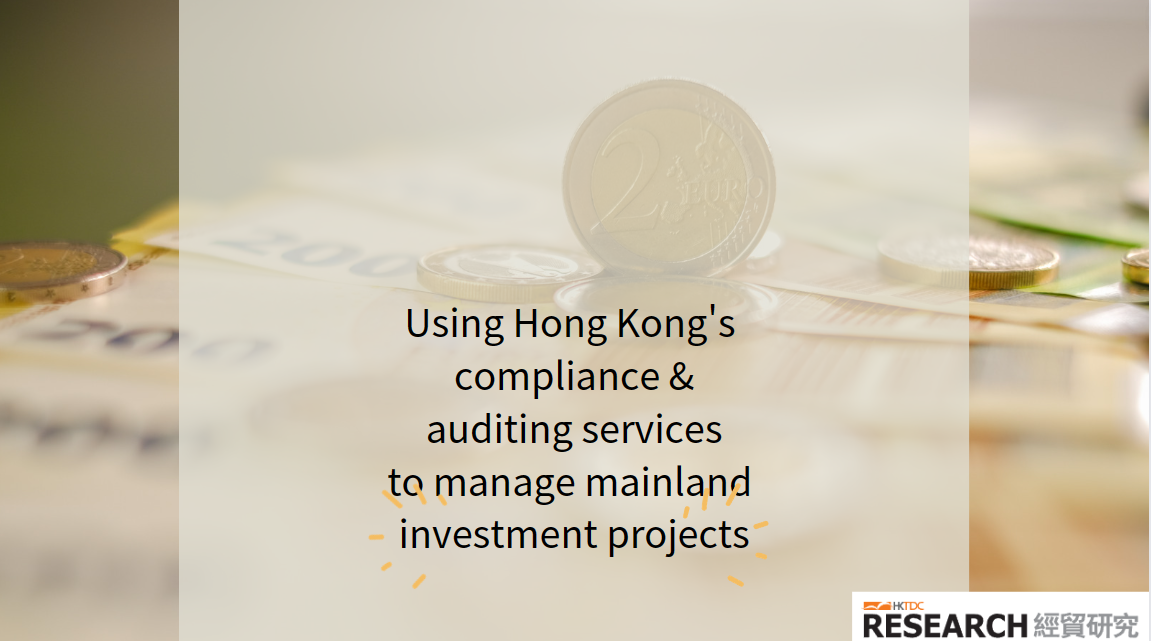Deep Dive of Hong Kong-Active Mainland Companies (6): Optimising Global Supply Chain Logistics Via Hong Kong
Hong Kong is an important logistics transport hub connecting the mainland and overseas markets. It provides comprehensive and efficient supply chain logistics services to traders in Hong Kong, mainland China and the world at large. Supply chain management company Flexport Asia Co Ltd makes use of Hong Kong’s advantages, notably its efficient air transport and leading information technology services, to provide comprehensive supply chain management services and logistics solutions to companies engaged in international trade in the region.
Leveraging Hong Kong’s strengths
Henry Ko Hok‑hang, Vice President of Corporate Development APAC and Chairman of Greater China at Flexport Asia Ltd [1], described Hong Kong as an international trading and logistics centre in the Asia‑Pacific region and a major global aviation hub with a well‑connected air transport network and a rich supply of experienced logistics management experts. He said his company uses Hong Kong’s leading edge in air transport and information technology to provide comprehensive supply chain logistics services, and also provides the ever‑increasing number of cross‑border e‑commerce companies with B2C logistics consultation services and solutions.
There has been continuous growth in global cross‑border e‑commerce in recent years despite the Covid-19 pandemic and geopolitical tensions. Ko noted that about 50% of global cross‑border e‑commerce business is connected with mainland China. He said that, since many large cross‑border e‑commerce companies are based in Shenzhen and other Greater Bay Area (GBA) cities, Flexport intends to make greater use of Hong Kong’s strength in logistics transport to serve cross‑border e‑commerce and provide value‑added services such as trade insurance and fintech services to other customers via Hong Kong’s trading platform.
A tech‑based multinational corporation, Flexport set up its Asia‑Pacific headquarters in Hong Kong in 2016 and maintains freight forwarding teams in Shanghai, Shenzhen and other cities. It provides trading companies and consignors with a full range of services, including order management, trade financing, insurance, freight forwarding and customs declaration, through its secured cloud service platform. Customers and consignors can use its one‑stop cloud integration platform for real‑time shipment tracking, cost control and supply chain data analysis. Flexport ’s work in accelerating the entire logistics transport process and strengthening supply chain management not only improves efficiency but helps reduce cost.
Rapid mainland recovery
Ko said Flexport believes the Chinese market will inject new drive into global economic development once the pandemic has subsided. He pointed out that mainland China’s supply chains were not greatly affected in the early stage of the pandemic. The intermittent closure of some factories in Southeast Asia meant that some of the region’s production capacity was temporarily shifted to mainland China, resulting in a significant increase in China’s exports. However, Europe and the Americas were both affected by the pandemic, leading to sea cargo congestion. This, coupled with a shortage of containers, greatly disrupted global supply chains. The scarcity of containers also pushed up shipping freight rates.
Problems such as soaring global inflation and Federal Reserve rate hikes in the US over the past two years have dampened consumers’ propensity to buy. Even when supply chains and logistics transport return to normal and international shipping rates fall, sluggish global demand will still affect foreign trade performance in Asia. However, now that mainland China has lifted its Covid-19 control measures and fully resumed normal travel with Hong Kong, and inflation and interest rate hikes in Europe and the Americas are beginning to ease, many foreign trade businesses are starting to see a rosier picture ahead. The gradual recovery of the mainland Chinese and Hong Kong economies and consumer markets should generate more business development opportunities for logistics service providers.
[1] Henry Ko Hok‑hang was interviewed jointly by HKTDC Research and the China Business Advisor (seconded from the Shanghai Municipal Commission of Commerce to HKTDC) in the first quarter of 2023.





















































First, please LoginComment After ~